#p: margaret dauphine of france
Explore tagged Tumblr posts
Text
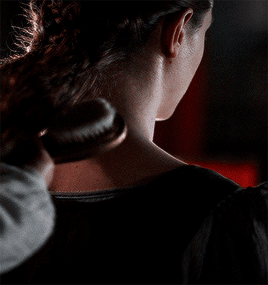
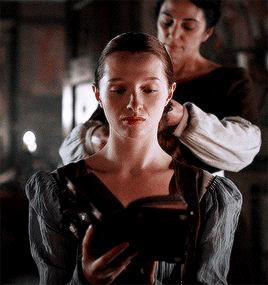


✧ The neglected Margaret of Scotland, Dauphine of France tried to centre her thoughts upon her own interests. She loved poetry above all things and gathered round her several women who occupied themselves with literary composition. (…) Alas, the French Court lacked the simplicity and purity which ought ever to surround a woman of Margaret's idealistic nature. Her love of the beautiful and unusual was to lead her into difficulties and suffering. She liked to sit evening after evening with the young courtiers and her maidens, reciting verse and singing love-songs, trying to keep out of her life the sordid ambitions and ugly intrigue which played a large part in the doings of others, and to bring into it some of the artistic atmosphere and culture she found congenial. – The Dauphines of France by Frank Hamel
#historyedit#p: margaret dauphine of france#margaret of scotland#margaret dauphine of france#margaret of scotland dauphine of france#margaret stewart#scottish history#french history#princesses#medieval history#15th century#house of stewart#kingdom of scotland#gifs#ours
188 notes
·
View notes
Text
Calendar of State Papers Foreign: Edward VI 1547-1553
1550
January 27. Place torn away. Count Ludovico Rangone to the Duke of Somerset. Returns thanks for renewed instructions to the Ambassador for the promoting of his affairs with the Emperor. [Italian. Half a page.]
---
March 24. Copy of the treaty of peace at Boulogne. [Fifteen pages. Printed by Rymer, Vol. xv., p. 211, ed. 1728.]
--- 1550. April. [Before the 6th.] "Memorandum of the Commission [to the Earl of Huntingdon, Lord Cobham, and Sir John Wallop] for delivery and receipt of the hostages." [Three pages. Draft.]
--- June. "The names of the French gentlemen." A list of the French Ambassadors Extraordinary, and those who accompanied them to England in May 1550, partly in the handwriting of Cecil. [One page.]
--- June 2. Westminster. The Council to Sir John Masone. Narrates the reception of M. de Chastillon and others sent to England to receive the King's ratification of the treaty of Boulogne, with the entertainments provided for them. Mentions the discussion of matters connected with the peace; such as the liberation of prisoners, restoration of captured vessels, and the demolition of Roxburgh and Eymouth.
Enumerates the presents made to them by the King. Refers to Bowes' proceedings with the Scots, and the encroachments made by the French at Calais. The King having pardoned some Frenchmen justly condemned to death, the Council hope that if any Englishmen are in similar case, the like clemency may be shown to them by the French monarch. [Ten pages. Partly printed by Tytler, Vol. i., p. 284. Copy in Sir J. Masone's Letter-Book.]
---- June 3. Konigsberg. Albert Marquis of Brandenburg to the Duke of Somerset, "Lord Protector." Letters of credence for John Alasco. [Latin. One page.]
---- June 14. Paris. Sir John Masone to the Council. Had received their letters on the 2d and 5th. The reception of the French Commissioners gave much satisfaction. Details his interview with the French King on preceding Thursday, in reference to the encroachments at Calais.
Having had secret intelligence of the arrival at the French Court of George Paris, sent from Ireland by M'William with letters of credence, and of the despatch to Ireland of M. de Botte, a Breton, disguised as a merchant, mentions his conversation with the King as to these practices with the Irish.
Had conferred with the Constable regarding the frontiers and the Scots at St. Andrew's. Recommends caution and preparation. Various reasons assigned for the Emperor going to the diet at Augsburg. Expense of living in France. Stourton desires to return to England, but is afraid to do so without warrant of protection. Sends a cipher. [Ten pages and a half. Copy in Sir J. Masone's Letter-Book. Partly printed by Tytler, Vol. i., p. 291.]
--- June 29. Poissy. Sir John Masone to the Council. Since Francisco's departure has had one or two conferences with the Constable as to the frontiers, and had been again in hand with him touching Ireland, about which country there is some stir in the French Court worthy to be looked into. These Irish wild beasts should be hunted down. T
The Emperor is reported to have left Spires on the 13th, and is expected at Augsburg on the 20th. He has grown into a notable pensiveness, and is specially troubled that peace has been concluded between France and England without him, and that he cannot frame his son to such a sort as he much desires
Notable feud between Roygnac and De Nevers. The Bishop of Rome has made an old bawd of his Cardinal, having neither learning nor any other virtue or good quality, wherewith the Holy College are much offended. Has been requested to intercede for François Robin, formerly in the service of Sir Thomas Speke, now a prisoner in the Marshalsea on suspicion of being a spy.
Stourton still importunes to obtain licence for him to return; his companion Horsemonden, than whom never was there a verier ruffian, and who to make himself a gentleman has fathered himself upon Pole's kindred, bragging the said Pole to be his uncle, has been commanded to avoid the Court.
Great want of rain lately, but much fallen within the last three days. The French King has nominated Basse Fontaine and Erskine Ambassadors to the Regent for pacifying the matters of Scotland. On the 27th, between four and five in the morning, the Queen was delivered of a son, whom they call M. D'Angoulême. Various surmises who shall be the godfathers; they who know much say that the Queen is desirous the King of England should be one of them, and that for that purpose a gentleman will shortly be sent to England. [Six pages and a half. Copy in Sir J. Masone's Letter-Book. Partly printed by Tytler, Vol. i., p. 301.]
---
June 30. Westminster. The Council to Sir John Masone. Send further instructions how to act in the matter of the encroachments. Sundry requests as to prisoners had been preferred by the French Ambassador. Inform him of the prohibition against the exportation of horses from Scotland to France through England, in consequence of their great scarcity and high price.
The French Ambassador had had appointed for his lodging the Lady Yardford's house,—one of the fairest in London,—but this he misliked, and as such as he wished were occupied by noblemen and others who cannot be dislodged, he seemed not altogether satisfied, although offered the best that could be had Scottish ships on the coasts of Cornwall, Devonshire, Essex, Sussex, and Suffolk, having not only pillaged the Emperor's subjects, and the Portuguese trading with the English, but also of late spoiled the King's subjects, proclamation had been made forbidding them to be supplied with provisions or other necessaries in any of his Majesty's ports. Send letter from Bowes of the 19th instant in regard to the Scots. [Five pages. Copy in Sir J. Masone's LetterBook.]
---
July 20. Poissy. Sir John Masone to the Council. Complains of the French Ambassador's misrepresentation of him in regard to the Scottish hostages, and gives an account of his explanatory interview with the French King and the Constable, who said that the Ambassador had been mistaken, but that, under the impression of a promise of their liberty having been made by some of the Council in London, the King had released the Scots taken at St. Andrew's, who otherwise should have rotted in prison, so cruel was their offence, so cruel was their murder [of Cardinal Beaton].
The King refused to interfere for the Archbishop of Glasgow, who must "stand to his folly." Incloses memorial from de L'Aubespine as to liberation of the French prisoners in Jersey. After great suit by the French King, and considerable difficulty made therin, the Bishop of Rome has extended the jubilee to the French Court. One or two sons of Lord Stafford have lately passed through Paris towards Rome; knows not whether Horsemonden has gone with them, but here he appears no more.
The Emperor's Ambassador and Nuncio from the Bishop of Rome have of late been twice or thrice at the Court together, it is supposed to persuade the King to agree to the Council. Intended exchange of the Emperor's Ambassadors at Rome and France. Roygnac's castle taken, and himself escaped to Flanders. No English prisoners now at Marseilles.
In seven or eight days the Prior of Capua and suite go to England on their way to Scotland to bring the Queen. Having the grant of the keeping of the abbey of Abingdon by letters patent, requests the Council's aid against the recusancy of a previous occupant to vacate the same. M. de Humiez, who was the Dauphin's governor, is dead.
Villebonne, who made the first payment of the money [conditioned in the surrender of Boulogne], is also to make the second; it is whispered at Court that his present at said first payment was very simple; if it were so, the Council have now occasion to make amends. [Ten pages. Copy in Sir John Masone's Letter-Book.]
--- July 26. "Acta Conventus Augustani anni 1550 summatim et breviter expositis Ces. M. ac principum responsis confecta xxvj° Julii, ex Cæsa. Matis. propositione." Copy of the proceedings at the Diet of Augsburg, assembled professedly for terminating the difference between the Catholics and the Protestants. [Latin. Twenty-one pages.]
---
August 3. Poissy. Sir John Masone to the Council. The Prior of Capua has altered his intention of going to Scotland by way of England, and has gone to Rouen, whence he will depart within three or four days. Has this day been to Court for redress of injury done to certain Englishmen in Brittany.
Has been required to write for the good entreating of the Queen Dowager of Scotland, in case she should be driven by stress of weather into any English port, or require a passport for a hackney or two. It is said she is to be married to the King of Navarre, whom the Lady Margaret has refused.
Sends much general information relating to the Emperor's proceedings, and of those of the Bishop of Rome in regard of the French bishops. Has had an interview with Geoffrey Pole [younger brother of the Cardinal], who, being very desirous to return to England requested him to write for permission to do so.
In consequence of Andelot not having returned from Spain, the King has deferred his journey to Rouen, whither he will not likely go till the 15th of next month. M. de Thermes comes from Scotland in the French King's company. [Seven pages. Copy in Sir J. Masone's LetterBook. Printed, except one paragraph, by Tytler, Vol. i., p. 308.]
----
August 11. Windsor. The Council to Sir John Masone. On Sunday the 3d inst. the French Ambassador had audience of his Majesty at Windsor, when he exonerated Masone in the matter of the Scottish hostages, and sought to transfer the blame to some of the Council, which they repudiated.
He also presented letters from the French King, Queen Dowager of Scotland, and two from the Scottish Queen, requesting a safe conduct for the galleys that were to convey the said Queen Dowager and her suite, with permission to send 300 horses through England; which requests were acceded to, the number of horses being reduced to 200.
A safe conduct for Henry Sinclair, Dean of Glasgow, and Thomas Menzies of Pitfoddels, with 24 men and horses, has also been granted. The Ambassador also intimated that the second payment for Boulogne was to be ready there on the 4th inst., and requested the sending of Commissioners to receive the same and set free the three remaining hostages.
Farther, had arranged for an interview between the English Commissioners on the Scottish border and the Scottish Commissioners touching the castle of Edrington and a fishing place in the Tweed. Desired to communicate all the preceding to the French King at his next audience. Instructions for the protection of Somerset herald [Atkynson] from the effects of a liability for a prisoner in France six years before. [Eight pages. Copy in Sir J. Masone's Letter-Book.]
---
August 26. Poissy.232. Sir John Masone to the Council. Had received their Lordships' letters, and communicated to the French King their concessions in regard of the Scottish Queen, as also the invasion of the debateable land by 2,000 Scots and 400 or 500 Frenchmen.
His Majesty admitted that he had heard something of this previously, but supposed it to have been a mere private quarrel between an Englishman and a Scotchman concerning the erection of a border peel. Expressed his regret and would issue immediate orders for the prevention of such in future; and confidentially informed him of a design by the Emperor and Lady Regent to send Skipperus to the English coast to carry away the Lady Mary, and of the Emperor's hatred of England, in despite of which he had made this cruel inquisition for heresy in the Low Countries.
Mentions his conference with the Constable as to the affair of Somerset herald. Great preparations are made for the reception of the Scottish Queen, for whose coming the christening has been deferred, the King desiring to have her as godmother. M. de Guise, with the flower of the nobility, has gone to Dieppe to meet her. Before going to Scotland the Prior of Capua provided for above 1,000 ells of white damask wherewith to apparel the slaves and mariners.
Again applies in regard of liberating the French prisoners in Guernsey and Jersey. Has often been required to write on behalf of a merchant of Orleans, whose ship of wines had been seized at Dover long since by the late Admiral, but had positively refused to do so, the matter being so old; yet the same being so pitiful, he cannot hold his pen from recommending it to their Lordships, if there be any remedy. [Seven pages and a half. Copy in Sir J. Masone's Letter-Book.]
---
Sept. (prior to 6th.) Commission from Henry II., King of France, to certain Commissioners appointed to meet with those of the Emperor for the purpose of settling commercial disputes between their subjects in Flanders. [Three pages. Copy.]
--- Sept. 10. Poissy. Sir John Masone to the Council. For the last 10 or 12 days the Queen of Scots has been so dangerously ill of the prevailing flux, that her recovery was doubted, but within the last two she is considered to be out of danger. On Sunday the Duke of Angoulême was baptized by the name of Charles Maximilian, so given by the Deputy of the King of Bohemia (no longer called Archduke), who being godfather had place above the King of Navarre.
The deputy godmother was the King's bastard daughter, who held the infant in place of the Duchess of Ferrara. Mentions the entertainment and presents given to the Deputy and his suite. The non-arrival of the Dowager Queen of Scotland had caused considerable alarm at the Court, lest the recent storms should have driven her to the coast of Flanders, but they have been relieved by hearing that she did not embark until last Saturday.
Immediately on his return M. de Thermes is to go as Ambassador to Rome, and the present one there, M. d' Urfé, is to come to be governor of the Dauphin in room of the late M. de Humiez. Revision of the mintage. M. de Biez is released from close confinement, and it is thought will eventually be restored altogether, much to the disappointment of Chastillon.
Three or four ships have lately arrived from England laden with images, which have been sold at Paris, Rouen, and other places, and being eagerly purchased, give to the ignorant people occasion to talk according to their notions; which needed not had their Lordships' command for defacing of them been observed.
The Sherif had attempted to surprise Oran, but being chased by Don Bernardine de Mendoça, had gone to Argel [Algiers] to see if he could succeed better there.
"This good fellow seemeth to be indifferent to all men, and careth not of what religion he be from whom he may catch any place to put his foot in."
Dragut Rey lately had made a descent on the African coast. Urges the regular payment of his salary, to prevent the necessity of his borrowing, which he must do at 40 per cent. besides interest, in consequence of the depreciation of the currency, so that his daily allowance of five marks a day does not yield him 40 shillings, while his expenses amount to double that sum.
The French King leaves this about Monday or Tuesday next week, and is to spend six or seven days at Anet, a residence of Madame de Valentinois, intending to enter Rouen on the 25th if no alteration in his plan. The Constable has had leave of absence till the King arrives at Anet, and has gone to his house called Chantilly. [Three pages. Copy in Sir J. Masone's Letter-Book.]
---
Sept. 14. Poissy. Sir John Masone to the Council. Had their letters of the 6th, and on the 13th audience of the French King, who was attended by the Cardinal of Lorraine acting in absence of the Constable. The King returned thanks to his Majesty for the enlargement of the Archbishop of Glasgow, and was contented with the appointment of two Privy Councillors as Judges of Appeal from the Admiralty Court, of the delays and lack of justice in which he had heard many complaints.
As to the Scots taken at St. Andrew's, he would defer the question of their full liberty till the arrival of the Queen Dowager, when that and all other matters connected with Scotland should be adjusted; but in the meanwhile would take steps to restrain the Scots on the borders. Has not lately seen De Boses, whom he believes to be attending on the Constable, but expects to see him at Rouen.
The Emperor's Ambassador here has written to the one in England to get him two geldings, and has requested Masone to be the means of procuring a licence for exporting them, notwithstanding the prohibition by reason of their great scarcity.
"There is a little square between the Duchess of Valentinois, who ruleth the roast, and the Constable; a great many of the Court wisheth the increase thereof. He is very ill beloved, for that he is a hinderer of all men saving his own kinsfolks, whom he doth so advance as no man may have anything by his will but they, and for that also he feedeth every man with fair words, and performeth nothing."
The King leaves for Rouen to-morrow, taking en route the Constable's houses, then Roche Guyon, and so to Anet. [Five pages and a half. Copy in Sir J. Masone's Letter-Book.]
---
Oct. 6. Rouen. Sir John Masone to the Council. Describes the entry of the French King into Rouen on the 1st of the month, the preparations in the city not having been completed by the 25th ult., in consequence whereof he had to reside in an abbey half a mile distant; but had kept the feast of St. Michael very solemnly within the city, when the order was conferred upon the Rhinegrave only, although there were four vacancies.
Sets forth the various pageants exhibited. Has had communications with the Constable in regard to the Scots; the settlement of these matters is deferred until the arrival of the Master of Erskine, who is expected in three or four days. Has been spoken to on the subject of the commercial Commissioners, and had seen De Boses about the counterfeiting of the English money.
Has this day waited upon the Queen Dowager of Scotland, who arrived on the 25th ult. with a large retinue of Scottish gentlemen, and had been received with much honour. Africa had been carried by assault on the 20th ult. with great loss. The English merchants much alarmed at the prospect of a war with France.
Sends the names of the principal Scots who are with the Queen Dowager, and who are squabbling greatly among themselves about their lodgings. The King will remain eight or ten days, and then visit Dieppe and his other fortresses on the sea coast.
The Emperor is still hot about the Council. The Pope's Nuncio and the Venetian Ambassador have been frequently of late with the King. The Duke D'Aumale is very desirous to have a portrait of the King of England, which he says was promised to him by his Majesty on his leaving England; urges that it may be sent to him while he is here as he speaks very highly of the King and of the realm, and of the courtesy which he met with there. [Six pages. Copy in Sir J. Masone's Letter-Book. Printed, with small omission, by Tytler, Vol. i., p. 325.]
--- Oct. 27. Westminster. The Council to Sir John Masone. Have received his last three letters, and commend his diligence. They are willing to entertain the Constable's proposition for a renewed negotiation by the same or other Commissioners, as he may prefer, but in the meanwhile require that the French troops quartered at Sandingfeld shall be withdrawn.
Mention their subsequent interview with the French Ambassador on the same subject, and the right of the English to the disputed boundaries. Send memorial of certain depredations by the French on some natives of Jersey, transmitted to them by Sir Hugh Paulet, the Captain of said island; also another touching an Englishman, named Broughton, prisoner in the hands of Mons. de Brissac. [Seven pages. Copy in Sir J. Masone's Letter-Book.]
--- Oct. Proposal, by medium of Dr. Bruno, from Albert Marquis of Brandenburg, to raise troops for the service of King Edward VI., for which he shall have a pension of 2,000l. per ann., and the command of said troops.
Refers to proposed marriage of the Marquis with the Princess Mary. Table showing descent of the Marquis from Frederick Burgrave of Nuremberg. [French. Five pages. Indorsed by Cecil, "Doct. Brunonis et Alb. Brandb. mq. opinio."]
---- Oct. Discourse by Dr. Bruno, wherein enumerating the various Sovereigns and Princes of Europe favourable to Protestantism, he proposed that each should send learned men, such as Bucer, Melancthon, &c., to the next pretended Council, for the purpose of disputing with the Papists, and if they should be unable to prevail, then to form a general league, and invoking King Edward to take the initiative. [Latin. Five pages. Indorsed by Cecil, "Discursus D. Brunonis."]
--- Oct. "Articles of the credence of the messenger from the Princes of Germany." With reference to forming a general league in defence of Protestantism; wherein is to be considered "the colour and craft whereby the war shall be dissembled not to be made for religion," and in such respect the league to be regulated by the terms of a "treaty of the Duke of Prussia with Mr. Alasco, had three years past." [Four pages. Indorsed by Cecil.]
---- Nov. 2. Caudebe. Sir John Masone to Sir William Cecil. Refers to his letter to the Council for an account of his proceedings. "If words can make all things hot, here lacketh none of that stuff." The French profess much, but he doubts their sincerity:. the thing that feareth him most being "that they know too well our estate, and thereby think they may ride upon our backs."
Is at present confined to bed with the gout, and his body so droops that he fears he shall never see the end of winter, a great part whereof will be spent in journeying. Earnestly begs to be recalled, as he would gladly die, if it might be, amongst Christian men. Mons. D'Estrees, who has been appointed to join the other Commissioners, is esteemed a sober, wise gentleman; he was lately captain of the guard, and has since been preferred to the office of the Ordnance, which is one both of more ease and reputation.
Hopes the Council will select a person of like quality to answer him, and suggests Mr. Blount of the privy chamber, if he is sufficiently acquainted with the language, because having been long in these parts he knows the ground. Hears that their Lordships having found some fault with the rolls of Parliament, have determined to commit them to the Exchequer. If this is done in his absence, it may compromise him, and therefore begs it may be deferred until his return. [Two pages.]
---
Nov. 9. Augsburg. Philip Prince of Spain to King Edward VI. Much mutilated;��apparently recognizing the Ambassador sent in room of Sir Philip Hoby. [French. Broadside. Signed by the Prince, and countersigned "G. Perezius."]
---
Nov. 18. Westminster. King Edward VI. to Herman, formerly Archbishop of Cologne, re-accrediting the bearer James Omphalius on his return to the Archbishop. [Latin. Broadside. Signed by the Members of the Council. Indorsed "The King's Matie to the old B. of Collen."]
---
Nov. 29. Westminster. Commissions from the King to Sir John Wallop, Sir Richard Blunt, Sir Richard Rede, Dr. William Cooke, and Francis Hall, Esquire, to meet with the French Commissioners for settling the boundaries round Calais. Signed by his Majesty, and counter signed by the Lords of the Council. [Latin. Broadside. Indorsed "Commission to treat with Commissioners of frontiers about bounding of the frontiers."]
--- Nov. 30. Westminster. The Council to Sir John Masone. Send copy of a commission for settling the question of depredations, wherein the Dean of St. Paul's and Dr. Glyn of the Arches are appointed to act during the absence of Rede and Cooke. Mention the argument between them and the French Ambassador as to jurisdiction, &c., and that Sir Richard Blount of the privy chamber was appointed a Commissioner of the boundaries in room of Sir Thomas Wyat, who is unwell and unable to act. [Three pages. Copy in Sir J. Masone's LetterBook.]
--- Dec. 4. Blois. Sir John Masone to Sir William Cecil. Thanks him for assisting in obtaining his recall. Has written also to thank the Duke of Somerset and the Earl of Warwick, at whose good agreement he rejoices. T
There is much talk of the dissensions in England. Offers his opinion on the mistaken policy of a proclamation in England touching the price of cheese and butter.
Desires the interference of the Council on behalf of Mr. Warner, who has been very ill handled at Winchester. As he has not heard who is to be his successor, has sent the names of some whom he considers fit. [Two pages. The greater portion printed by Tytler, Vol. i., p. 340.]
--- Dec. 12. Westminster. King Edward VI. to Christian King of Denmark. Refers to the mission of Albert Knoppert, mentioned in the previous letter of 18th November. Some of the English merchants complain that the dues exacted at Elsinore from all ships of whatever tonnage, which prior to 1548 never exceeded a Henrician noble, of the value of ten shillings, have been raised to one pound on every hundred of the value of the freight, both going and coming.
Requests that the ancient customs may be restored, or reason for this modern innovation be given by letter from his Majesty. Signed by his Majesty. [Latin. Broadside.] Duplicate, signed by the Council, viz.: Somerset, the Archbishop of Canterbury, Rich Lord Chancellor, Warwick, and Bedford. [Latin. Broadside.] Copy of the preceding in modern writing. Another copy.
--- Dec. 17. Westminster. The Council to Sir John Masone. Mention their conference with the French Ambassador on the preceding Sunday, when he made various trifling objections to the Commission for settling depredations. Complain of the conduct of the French Commissioners for the boundaries in advancing groundless claims, and desire him to request an audience of the French King for the purpose of remonstrance. [Five pages. Copy in Sir J. Masone's Letter-Book.]
---
Dec. 30. Blois. Sir John Masone to the Council. Had received their letter of the 17th on Christmas eve, and on St. Stephen's day had audience of the French King. Details this conference, and a subsequent one with the Constable on the same points of remonstrance; at both of which amity was strongly professed and entreaty made for friendship between the English and the Scots.
Erskine arrived this day with the conclusion of peace between the Emperor and the Scots. Warlike preparations both by sea and land are great, and the completion of the ships formerly mentioned is hastened. Lately at Court war against the English had been strongly urged, on the ground of their internal dissensions, want of supplies, &c.
The galleys for re-conveyance of the Queen Dowager of Scots are still at Rouen. The Earl of Huntly is lodged at Court, and much called to secret conferences; he has been twice or thrice with Masone making profession of friendship to the English, explaining his escape, and his desire to have a safe conduct to return by land.
The French King leaves soon after Twelfthtide for Tours, and is reported thereafter to go to Guienne. The Landgrave had nearly escaped from Mechlin; if he had "there would have been shortly a jolly revel in Allmaigne." The Rhinegrave and his brother are reconciled. Chastillon, after long absence, has returned to Court, bringing with him 30 or 40 captains, and above 100 great horses. Among other marriages "muttered," is that of the Dauphin with the Queen of Scots. "Wavering Dr. Smythe," (fn. 1) who is presently reading at Paris, begs permission to return; his leaving England "was, he sayeth, for lack of living, being less ashamed to beg here than at home."
States his own financial difficulties; he has exhausted his credit in England, sold all his own plate, "and shall shortly be driven for very extremity to do the like with the King's." "If the realm be in that poverty that the King's ministers of honour, who were wont to be served with the first, cannot be paid six months after the day, God help!" [Fourteen pages. Copy in Sir J. Masone's LetterBook.]
---- Dec. 30. Augsburg. Sir Richard Morysine to Cecil. (fn. 2) In consequence of a post from Rouen to Flanders having been robbed of his packets last week, he essays cipher, which if Cecil be as weary with finding as he is of hiding what he writes, he will henceforth be plainer. Is weary both of writing, and that he can by none of his letters get his diets to come a day sooner than they should. Others might better shift than he can. If he is not helped soon, he shall borrow no more where he borrowed last. [Two pages. Partly in cipher, undeciphered.]
#Edward VI#King Edward VI#King of England#King Edward VI of England#Edward Tudor#House of Tudor#Tudor Dynasty#The Tudors#Mary Queen of Scots#Marie de Guise#primary sources#Henri II#Henry II of France#Diante of Poitiers#1550
7 notes
·
View notes
Text
Photos : Miss Univers : Iris Mittenaere a cédé son titre à Miss Afrique du Sud !
Miss Afrique du Sud, Demi- Leight Nel-Peters, a été élue Miss Univers lors de la cérémonie qui s’est déroulée à Las Vegas dimanche 26 novembre. L’univers a une nouvelle représentante, et elle vient cette année d’Afrique du Sud ! Demi- Leight Nel-Peters a été sacrée Miss Univers lors de la cérémonie qui s’est déroulée à Las Vegas dimanche 26 novembre. Elle prend ainsi la suite de la Française Iris Mittenaere, sacrée l’année passée. Miss Afrique du Sud a battu dans le duel final Miss Colombie. Demi- Leight Nel-Peters a reçu sa couronne des mains d’Iris Mittenaere, manifestement très émue elle aussi, mais rayonnante dans une robe rouge particulièrement décolletée. Congratulations to Demi-Leigh Nel-Peters, the winner of the 2017 #MissUniverse competition! pic.twitter.com/JYuQYc3Lvo— Miss Universe (@MissUniverse) 27 novembre 2017 Miss Jamaïque s'est classée deuxième dauphine, tandis que Miss Thaïlande et Miss Venezuela complètent le top 5 du concours. Demi- Leight Nel-Peters est née le 28 juin 1995 et devient la première Sud-Africaine à remporter le titre de Miss Univers depuis Margaret Gardiener, sacrée en 1978. Elle étudie dans le domaine de l’entrepreneuriat et du management dans le milieu des affaires et mesure 1 mètre 73.Les années se suivent et ne se ressemblent pas pour nos miss hexagonales. Si Iris Mittenaere était p... Retrouvez cet article sur Public
Photos : Iris Mittenaere : ce qui l'attend une fois rentrée en France !
Photos : Voici les 30 candidates à la couronne de Miss France 2018 !
Photos : Miss France 2018 : Découvrez les 30 candidates en maillot de bain
Miss France 2018 : les candidates sont arrivées à Los Angeles !
Miss France 2018 : Découvrez le test de culture générale des candidates

L’univers a une nouvelle représentante, et elle vient cette année d’Afrique du Sud ! Demi- Leight Nel-Peters a été sacrée Miss Univers lors de la cérémonie qui s’est déroulée à Las Vegas dimanche 26 novembre. Elle prend ainsi la suite de la Française Iris Mittenaere, sacrée l’année passée. Miss Afrique du Sud a battu dans le duel final Miss Colombie. Demi- Leight Nel-Peters a reçu sa couronne des mains d’Iris Mittenaere, manifestement très émue elle aussi, mais rayonnante dans une robe rouge particulièrement décolletée. Congratulations to Demi-Leigh Nel-Peters, the winner of the 2017 #MissUniverse competition! pic.twitter.com/JYuQYc3Lvo— Miss Universe (@MissUniverse) 27 novembre 2017 Miss Jamaïque s'est classée deuxième dauphine, tandis que Miss Thaïlande et Miss Venezuela complètent le top 5 du concours. Demi- Leight Nel-Peters est née le 28 juin 1995 et devient la première Sud-Africaine à remporter le titre de Miss Univers depuis Margaret Gardiener, sacrée en 1978. Elle étudie dans le domaine de l’entrepreneuriat et du management dans le milieu des affaires et mesure 1 mètre 73.Les années se suivent et ne se ressemblent pas pour nos miss hexagonales. Si Iris Mittenaere était p Plus d'images sur Public.fr !
Source: Public

Miss Afrique du Sud, Demi- Leight Nel-Peters, a été élue Miss Univers lors de la cérémonie qui s’est déroulée à Las Vegas dimanche 26 novembre. Plus d'images sur Public.fr !
Source: Public

Source: Public

Source: Public

Source: Public

Source: Public

Source: Public

Source: Public
#_revsp:public_640#_uuid:ac83b8d9-a8c8-3aba-9e9f-af4c2570ccde#_lmsid:a077000000MEXdIAAX#slideshow#people
0 notes
Photo

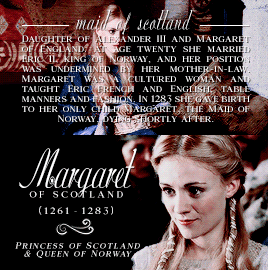



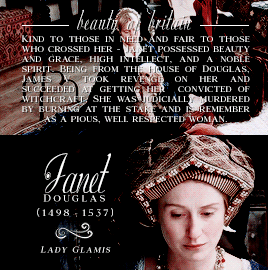

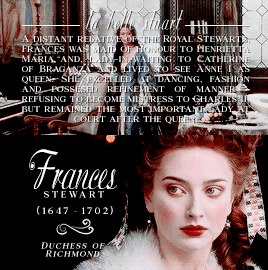
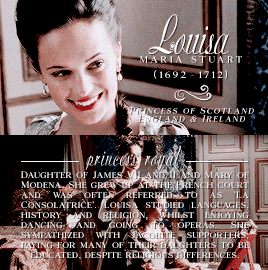
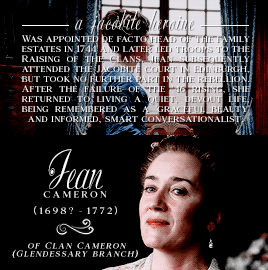
10 of our favourite ladies (excluding queens of Scotland)
#historyedit#scottish history#british history#noblewomen#clanswomen#princesses#gifs#ours#kingdom of scotland#p: matilda queen of england#p: margaret queen of norway#n: agnes randolph#p: margaret dauphine of france#p: eleanor archduchess of austria#n: janet douglas lady glamis#n: arbella stuart#n: frances stewart#p: louisa maria stuart#c: jean cameron of glendessary
265 notes
·
View notes
Photo

A 1797 copper engraving of Margaret (Stewart) of Scotland, Dauphine of France (1424-1445), published in ‘Iconographia Scotica’ by John Pinkerton.
#margaret stewart dauphine of france#margaret of scotland#house of stewart#history#scottish history#kingdom of scotland#p: margaret dauphine of france#princesses#artwork#*artwork#ours
64 notes
·
View notes
Photo

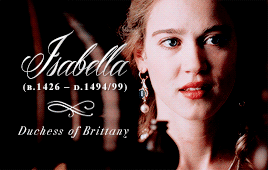


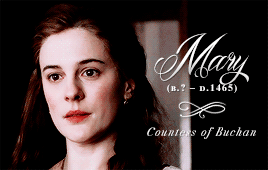
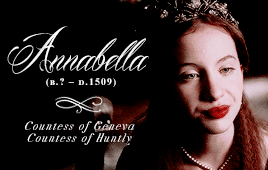
♕ Daughters of James I of Scotland and Joan Beaufort (requested by anonymous)
#historyedit#scottish history#kingdom of scotland#margaret stewart dauphine of france#isabella stewart duchess of brittany#eleanor stewart archduchess of austria#joan beaufort#james i#p: margaret dauphine of france#p: isabella duchess of brittany#p: joan countess of morton#p: eleanor archduchess of austria#p: mary countess of buchan#p: annabella countess of geneva#ours#princesses#house of stewart#gifs#scotlandsladies#requests
254 notes
·
View notes
Photo

A hand-coloured lithograph of Margaret (Stewart) of Scotland, Dauphine of France. The illustration is by Leopold Massard after a portrait in Roger de Gaignieres’ portfolio VI 142 from Paul Lacroix’s Historical Costumes of France, 1852.
#historyedit#scotlandsladies#margaret stewart dauphine of france#margaret of scotland#margaret stewart#p: margaret dauphine of france#house of stewart#princesses#artwork#ours#*artwork#kingdom of scotland
226 notes
·
View notes
Photo

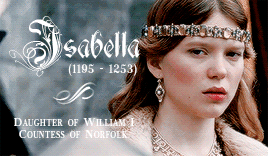
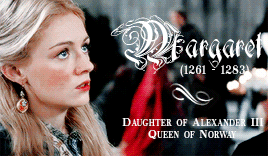
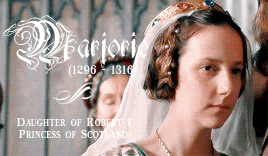
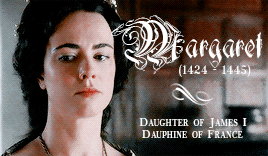
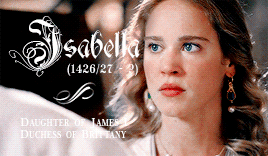
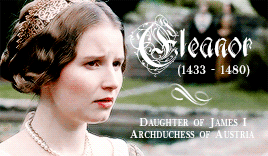


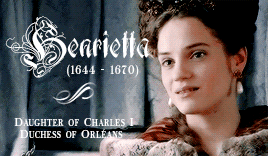
10 favourite Scottish princesses (requested by anonymous)
#historyedit#scottish history#british history#house of stuart#house of stewart#house of bruce#house of dunkeld#p: matilda queen of england#p: isabella countess of norfolk#p: margaret queen of norway#p: marjorie bruce#p: margaret dauphine of france#p: isabella duchess of brittany#p: eleanor archduchess of austria#p: elizabeth queen of bohemia#p: henrietta anne duchess of orléans#ours#princesses#requests#kingdom of scotland
584 notes
·
View notes
Photo

On This Day In History . 12 February 1424 . King James I of Scotland married Joan Beaufort . . King James I of Scotland of the House of Stewart married Joan Beaufort, a cousin of Henry VI of England & the niece of Thomas Beaufort, 1st Duke of Exeter, & Henry, Bishop of Winchester. . ◼ They were wed at St Mary Overie Church in Southwark. They were feasted at Winchester Palace that year by her uncle Cardinal Henry Beaufort. She accompanied her husband on his return from captivity in England to Scotland, and was crowned alongside her husband at Scone Abbey. As queen, she often pleaded with the king for those who might be executed. . The royal couple had eight children; . ◾ Margaret Stewart, Princess of Scotland (1424–1445) married Prince Louis, Dauphin of Viennois (later King Louis XI of France) . ◾ Isabella Stewart, Princess of Scotland (1426–1494) married Francis I, Duke of Brittany . ◾ Mary Stewart, Countess of Buchan (died 1465) married Wolfart VI van Borsselen . ◾ Joan of Scotland, Countess of Morton (c. 1428–1486) married James Douglas, 1st Earl of Morton . ◾ Alexander Stewart, Duke of Rothesay (born and died 1430); Twin of James . ◾ James II of Scotland (1430–1460) .. ◾ Eleanor Stewart, Princess of Scotland (1433–1484) married Sigismund, Archduke of Austria uncle Cardinal Henry. . ◾ Annabella Stewart, Princess of Scotland (c. 1436 – 1509) married and divorced 1. Louis of Savoy, and then married and divorced 2. George Gordon, 2nd Earl of Huntly . . . #onthisdayinhistory #thisdayinhistory #d12feb #theyear1424 #JamesI #JamesIofScotland #KingofScots #history #JoanBeaufort #Scottishmonarchy #HouseofStewart #britishmonarchy #Southwark #Wedding #RoyalWedding #London #England #historyfacts #Scotland #arthistory (at Southwark) https://www.instagram.com/p/Bty_V55leZS/?utm_source=ig_tumblr_share&igshid=taikl5dtrrhp
#onthisdayinhistory#thisdayinhistory#d12feb#theyear1424#jamesi#jamesiofscotland#kingofscots#history#joanbeaufort#scottishmonarchy#houseofstewart#britishmonarchy#southwark#wedding#royalwedding#london#england#historyfacts#scotland#arthistory
3 notes
·
View notes
Photo

On This Day In History . 29 August 1475 . The Treaty of Picquigny ends a brief war between the kingdoms of France and England. . . ◼ The Treaty of Picquigny was a peace treaty negotiated on 29 August 1475 between the Kingdom of England & the Kingdom of France. It followed from an invasion of France by Edward IV of England in alliance with Burgundy & Brittany. It left Louis XI of France free to deal with the threat posed by Charles the Bold, Duke of Burgundy. . ◼ The negotiations led to an agreement signed in 29 August 1475. The two kings agreed to a seven-year truce & free-trade between the two countries. Louis XI was to pay Edward IV 75,000 crowns upfront, essentially a bribe to return to England & not take up arms to pursue his claim to the French throne. He would then receive a yearly pension thereafter of 50,000 crowns. Also the King of France was to ransom the deposed Queen Margaret of Anjou, who was in Edward's custody, with 50,000 crowns. It also included pensions to many of Edward's lords. . ◼ Other provisions of the treaty were that if either king experienced a rebellion, the other would provide military support to defeat it. Edward's daughter Elizabeth of York was to marry the Dauphin Charles when she came of age. The English claim to the French throne was to be subject to arbitration along with other disagreements between the monarchs. A committee should meet annually to discuss the issues & their conclusions should be binding. It was to comprise the archbishops of Canterbury & Lyons, Edward's brother George, the Duke of Clarence, & Louis, Count of Dunois. . ◼ In addition to the king, his leading advisors also received pensions from the French. Thomas Rotherham the chancellor had 1,000 crowns a year. John Morton had 600 crowns, & Sir John Howard and Sir Thomas Montgomery 1,200 each. William Hastings, 1st Baron Hastings, who had been the chief advocate for the treaty, was to receive 2,000 crowns a year. . . . #OnThisDayInHistory #ThisDayInHistory #Treaty #PeaceTreaty #TreatyofPicquigny #Picquigny #History #England #France #KingEdwardIV #EdwardIVofEngland #EdwardIV #HouseofYork #KingofEngland #HouseofPlantagenet #EnglishMonarchy #British #D29Aug (at United Kingdom) https://www.instagram.com/p/B1wzBxjgpzs/?igshid=1absvzj7v333c
#onthisdayinhistory#thisdayinhistory#treaty#peacetreaty#treatyofpicquigny#picquigny#history#england#france#kingedwardiv#edwardivofengland#edwardiv#houseofyork#kingofengland#houseofplantagenet#englishmonarchy#british#d29aug
0 notes